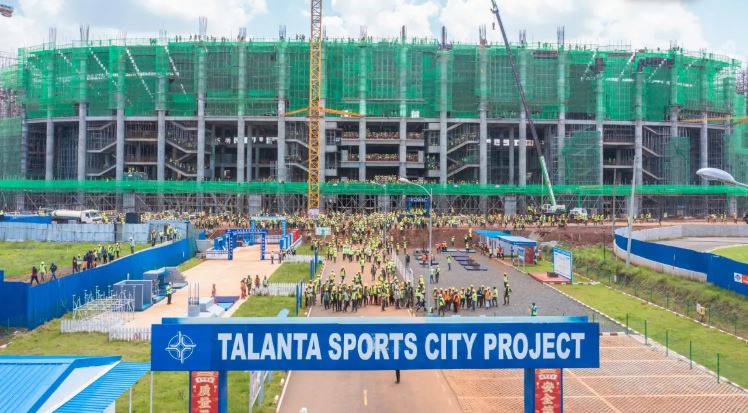

The years 2025 and 2027 mark a golden chapter for Kenya’s sports and tourism sectors.
Together with our East African neighbours, Uganda and Tanzania, Kenya will co-host two major continental football tournaments: the CAF TotalEnergies African Nations Championship (CHAN) 2025, a competition for locally-based players, and the prestigious Africa Cup of Nations (AFCON) 2027.
For football lovers across the region, these events are a long-awaited dream fulfilled. Even with the matches still months away, one can already picture the electric atmosphere—fans draped in national flags, renditions of anthems echoing through stadiums, and faces painted in patriotic colours.
But these are more than just football tournaments. If we prepare well, the ripple effects can extend far beyond the pitch—from the beach resorts of Diani and Lamu, to the safari lodges of Tsavo, to Maasai beadwork traders in Narok.
Football is not just a game; it is a tool of soft power with significant economic potential. According to the 2023 Football and Tourism Report, the global sports tourism market is expected to reach $1.7 trillion, with football accounting for 40% of that value.
More Than a Game, More Than a Match
The global media is expected to descend on East Africa, not just to cover matches but to explore local culture, daily life, and investment opportunities. The New York Times’ sports newsletter, The Athletic, has called AFCON a “seed of unbridled footballing joy.”
The BBC has noted that “improved transport links [in preparation for these tournaments] boost tourism in the future.” Yet, when compared to our co-hosts—especially Tanzania—Kenya risks underutilising this global spotlight.
In 2023, Kenya recorded 2.5 million international tourists, generating Ksh 352 billion in revenue. These are encouraging numbers, but still below pre-pandemic levels.
CHAN and AFCON offer a unique springboard to revitalise our tourism industry, especially when aligned with the goals of Vision 2030’s Fourth Medium-Term Plan (MTP IV).
What Needs to Be Done
First, the ongoing renovations and construction of stadiums—such as Nyayo, Kipchoge Keino, and the new Talanta Stadium—must be completed on time and to global standards. But the real game-changer lies beyond the stadia.
Institutions like the Kenya Tourism Board (KTB), Kenya Airways, Kenya Wildlife Service (KWS), and the Ministry of Sports, Culture and Heritage must work together to launch an aggressive global and pan-African marketing campaign, positioning Kenya as the ultimate tourism hub during the tournament season.
Kenya must highlight its unmatched offerings: vibrant nightlife in Nairobi, hiking in the Aberdares, cultural immersion in Samburu, and relaxing beach life on the Swahili coast.
Travel packages should be creatively designed—visitors attending AFCON in Nairobi, for example, should be incentivised to explore the Maasai Mara or Malindi.
Secondly, local businesses and counties must be actively involved in the preparations. CHAN and AFCON are not just national events—they are regional showcases. Cities such as Nairobi, Mombasa, Kisumu, and Eldoret must prepare with enhanced hospitality training, improved public transport systems, and support for local vendors.
Entrepreneurs—from tour operators to Airbnb hosts—need access to affordable credit and capacity-building initiatives to meet international expectations.
Don't Cut the Tourism Budget
Most importantly, this is not the time to slash budgets for tourism promotion. With rising fiscal pressures—highlighted by CS John Mbadi in the 2025/26 Budget Statement—there is a risk of cutting funding to so-called “non-essential” sectors.
That would be a critical mistake. Tourism is not a luxury—it is a strategic economic pillar, a major employer, and a driver of national branding.
Slashing its budget now would hand a competitive advantage to Dar es Salaam and Kampala, who are undoubtedly gearing up to capture a bigger share of the visitor spend.
If well-managed, CHAN and AFCON could inspire Kenya, Uganda, and Tanzania to pursue joint bids for other international sports events, from the FIFA World Cup to the Commonwealth Games.
As the world’s spotlight turns towards East Africa, Kenya must demonstrate planning, collaboration, and innovation. These tournaments offer us the rare chance to convert a football showcase into a long-term tourism legacy.
A Moment to Claim Africa’s Stage
Ultimately, the success of CHAN 2025 and AFCON 2027 will not only be measured by goals scored or trophies lifted. It will be judged by how well we seize the opportunity to tell Kenya’s story—to the world and to ourselves.
Will tourists leave thinking Kenya is just another tournament venue? Or will they return home with memories of a land teeming with culture, wildlife, and warmth? CHAN and AFCON offer us a chance to score big beyond football. Let’s not waste it.
Oscar Ochieng is a communications practitioner.
Email: [email protected]




















